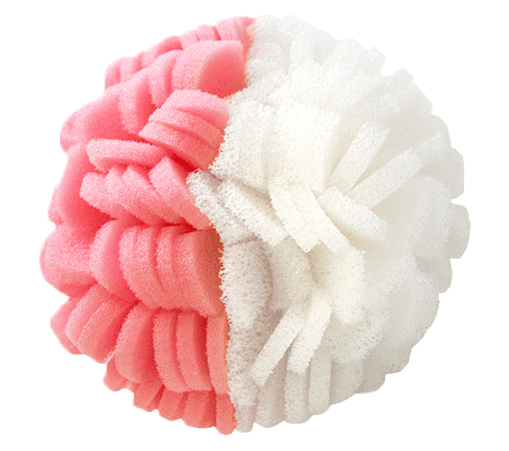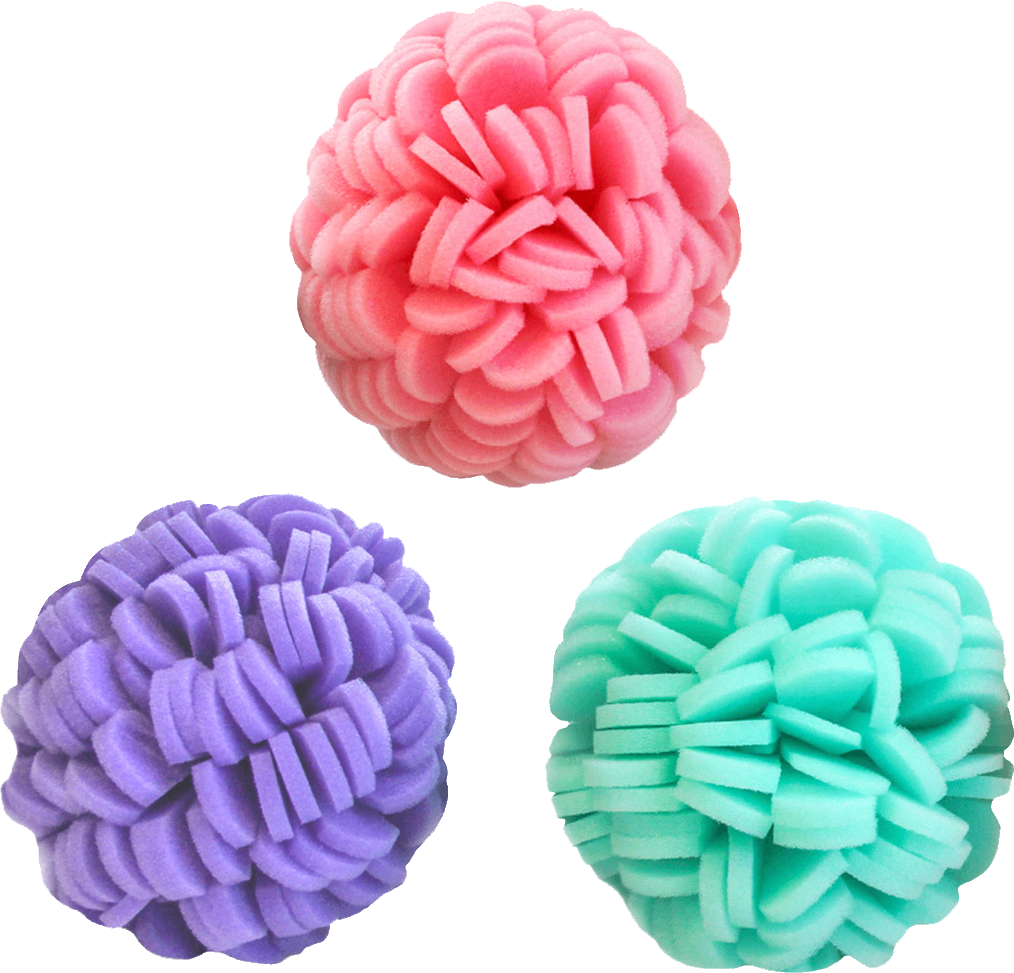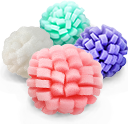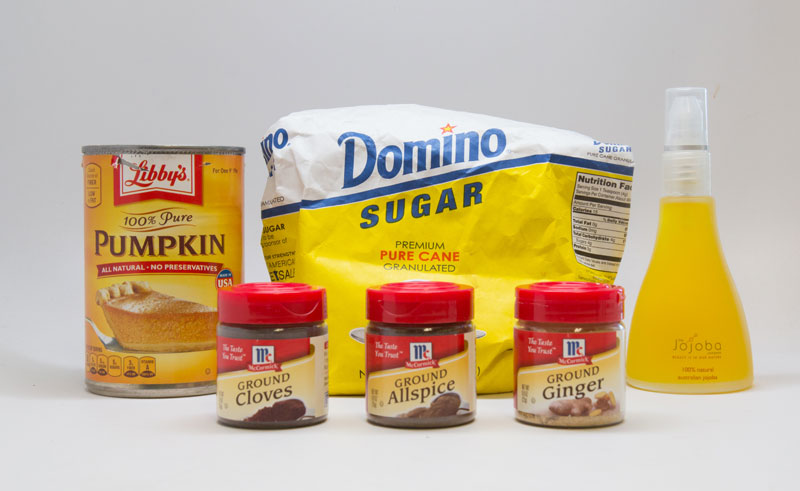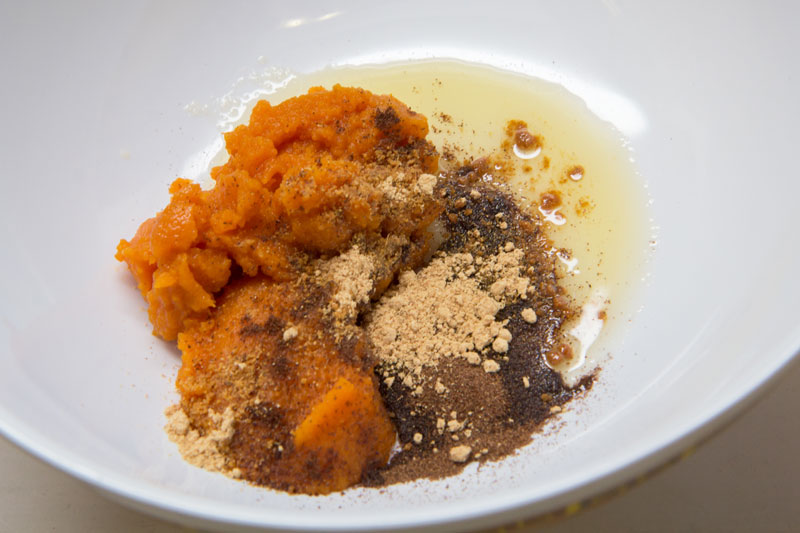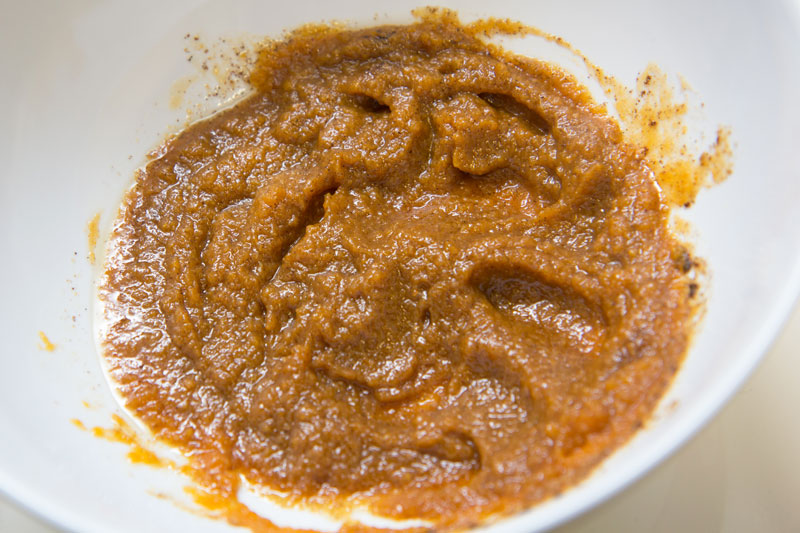Thanksgiving is just a few days away, and we at the ViaBuff office are excited to try this Thanksgiving-themed DIY facial mask that we designed ourselves. Containing pumpkin, allspice, and sugar, this mask reminds of us of our favorite Thanksgiving dessert – pumpkin pie! Give this mask a try over the holiday season, and let us know your thoughts in the Comments section!
½ teaspoon ground cloves
½ teaspoon allspice
½ teaspoon ginger
1 teaspoon granulated sugar
3 tablespoons pumpkin
2 tablespoons jojoba oil
¼ cup warm water
Clove and Allspice
Regretfully, there is not much clinical literature examining the effects of topically-applied spices one one’s skin. However, research published in the journal Applied Biochemistry and Microbiology found that clove buds and allspice exhibited significant anti-radical activity when compared against a synthetic phenolic antioxidant ionol. This study did not make use of human models, but these findings nevertheless would seem to suggest that these spices may be able to protect against damaging free radical activity. Research published in the Brazilian Journal of Microbiology found that clove oil exhibited anti-fungal properties when placed in a sugar solution. Although this experiment did not make use of human models, it is not unreasonable to believe that these anti-fungal properties would be present upon topical application and be of use in treating lesioned or wounded skin.
Ginger
Much like cloves and allspice, there is still much more research to be conducted regarding ginger’s effects on the skin. Nevertheless, ginger extract holds much promise for skin health. For example, research published in Planta Medica found that ginger extract exhibited anti-inflammatory activity when applied to mice skin, with the experimenters suggesting that these effects may translate to use in humans .Topically-applied ginger also exhibited analgesic (pain-relieving) effects on individuals with osteoarthritis, according to research published in the Journal of Holistic Nursing. While osteoarthritis is a bone disease, it is possible that these pain-relieving effects would similarly translate to pain from wounds or acne lesions.
Granulated sugar
We doubt that you needed another reason to love sugary treats, but did you know that granulated sugar has demonstrated significant prowess in terms of wound healing? Research published in the journals Orvosi Hetilap and Standards of Care: Emergency and Critical Care Medicine indicated that granulated sugar may prevent bacterial infection recurrence in individuals suffering from open heart surgery and encouraged epithelization when applied topically. Similarly, research published in Wounds International suggested that granulated sugar encourages granulation tissue formation and wound contraction, and treat malodorous wounds. So if you have scrapes, acne lesions, or another sort of wound on your face, it is likely that granulated sugar can help it to heal.
Pumpkin
In addition to being a tasty Thanksgiving dessert, pumpkin may hold a great deal of benefits for your skin. For example, pumpkin contains beta-carotene, a carotenoid that has been shown to exhibit a degree of photoprotection when applied topically, although this effect does not nullify the need for use of a daily sunscreen. In addition, numerous studies have lauded beta-carotene’s ability to alleviate UV-induced erythema and protect against oxidative stress (American Journal of Clinical Nutrition, Journal of Toxicology and Industrial Health). Topically-applied beta carotene may also assist in Vitamin A production in the skin. For example, research from the journal Experimental Dermatology found that beta carotene was converted into retinyl esters in human and mice skin, with retinyl esters serving as a precursor of Vitamin A. Even though research surround topically-applied pumpkin is relatively sparse, there is good reason to believe that pumpkin may be of use in treating photodamaged and aged skin.
Jojoba Oil
Putting jojoba oil in your pumpkin pie (or any food) is not a great idea, but we could not resist including it in our DIY facial mask. Topically-applied jojoba oil is a penetration enhancer that assists other ingredients to penetrate your skin more completely (Journal of the American Oil Chemists’ Society, Journal of Cosmetic Science), a huge bonus when you pair it with a plethora of beneficial ingredients (such as those in this DIY facial mask!). Jojoba is a great moisturizing ingredient because it is very similar to human sebum in terms of its composition, meaning that it provides a more “natural”-feeling moisture to your skin. Jojoba oil is also believed to regulate oil production by fooling your skin to believing that it is producing too much oil, thereby tricking it into producing more standard amount of moisture. (Skin and Allergy News, (Dr. Joshua Zeicher for HowStuffWorks.com). According to research published in the European Scientific Journal and Pharmacology Research , jojoba oil may offer antibacterial, anti-inflammatory, analgesic and antioxidant properties to your skin.
Bottom Line
Exfoliation is essential for those looking to have vibrant and healthy skin. While we at ViaBuff take our exfoliation seriously, we like to have a bit of fun when it comes to formulating our own exfoliating serums and masks. Our Thanksgiving moisturizing face mask makes use of cloves and allspice for anti-radical activity, whereas ginger is an anti-inflammatory agent that pairs nicely with granulated sugar’s wound-healing abilities. The pumpkin extract in our formulation contains beta carotene, which exhibits photoprotective properties on the skin, whereas jojoba is a fabulous hydrating ingredient that also possess anti-inflammatory and analgesic abilities.

